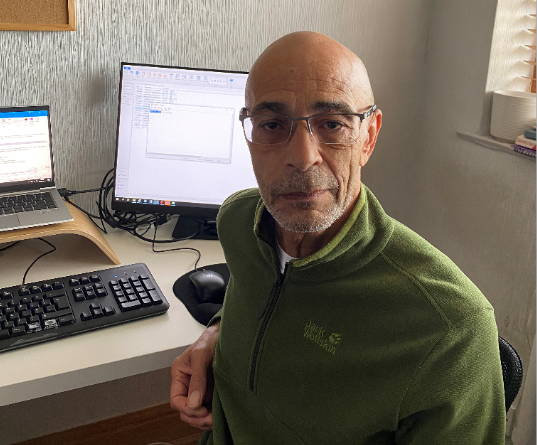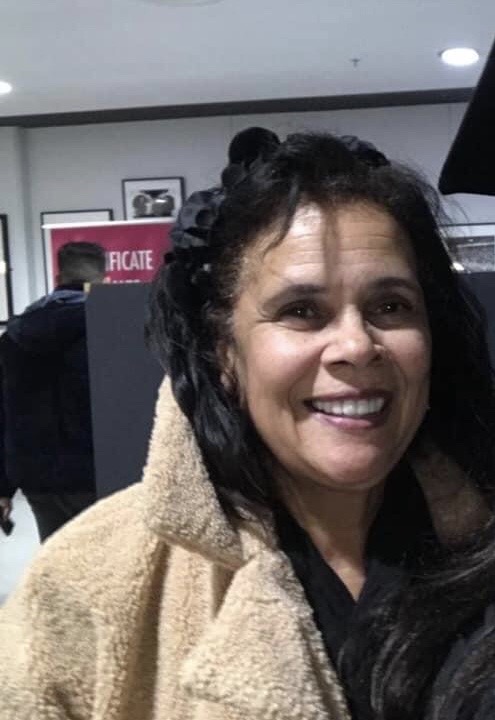IF you dream about a career in social work, here’s SIX things you need to know about what the profession is really like.
Social workers have long been in great demand in the UK.
And according to the British Association of Social Workers (BASW), that need has only increased because of the Covid-19 pandemic.
A recent survey conducted by the BASW found two thirds of its members experienced an increase in referrals at the height of the crisis.
And if you’re looking for a job that could really see you making a difference to the lives of others, a career in social work could be the one for you.
Coinciding with this increased demand, Liverpool Hope University has launched a new expansion of its Social Work degree programme designed to encourage more applicants from Merseyside’s under-represented communities.
The project is being run by Hope, spearheaded by Councillor Anna Rothery and created in conjunction with Liverpool City Council.
There are 15 extra spaces being created on the BA Social Work - and it's a route into social work for a huge range of communities that aren't adequately represented in Liverpool's social work teams. That includes Black, Asian, Chinese, Bangladeshi, Indian, Pakistani, Yemeni, Somali, Black African and Black Caribbean communities - and a whole lot more besides.
It's open to anyone living in the Liverpool City Region Combined Authority, which incorporates the councils of Halton, Knowsley, Sefton, St Helens, and Wirral.
Students on the degree will also be supported by a team of mentors - professional social workers with years of experience on the frontline, who are also from diverse communities, and who are willing to share their wisdom.
Here some of those mentors reveal what a life in social work is really like in the city - while also explaining just how rewarding it can be.
You can help in the fight for social justice and equality
Maleka Egeonu Roby works as an Adult Services social worker in the Council’s Central Team, covering everything from learning disabilities to homelessness and drug and alcohol misuse.

She says: “Social workers are there to support everyone - it’s about you, we, them and our communities. And a career in social work offers an amazing opportunity to really challenge social injustices in all its forms. As the activist Martin Luther King Jr. once said, ‘Injustice anywhere, is a threat to justice everywhere’. Social work allows us to advocate and promote social justice for the diverse communities of the Liverpool City Region. And right now, more than ever before, that’s incredibly important.”
Andrew Jackson, who has a wealth of experience working in Adult Services for Liverpool City Council, adds: “If you’re thinking about a career in social work, you need to ask yourself, ‘Do I have a passion for social justice and equality? Can I make a difference and help to bring about changes for individuals that require social work input?’ If you can honestly answer yes, you could really help to make a difference.”
Social work isn’t just about helping children
Experienced social worker Yvonne Griffin is a former Team Manager in Children’s Services for Liverpool City Council.
But while many people associate social work with helping children, there’s much more to it than that.
Yvonne explains: “There is no easy way to define social work - it’s a complex situation. And as a social worker, there are many areas in which to work and specialise. While I’ve worked in this area, social work is not just about Children’s Services. It could be working with families, older people, people with learning disabilities, people with other disabilities, drug and alcohol misusers, alongside homeless people or people with a medical condition. Social work skills are also highly transferable and valued by other potential employers.”
You need to be a team player
Due to the varied nature of the role of a social worker, you need to be prepared to work closely with others.

Andrew argues: “Social work is practiced in a variety of settings and institutions, including , schools, hospitals, day services and community based services. It’s good to have a general idea of the client group you think you may work well with when you’re preparing to study social work, though this may change during your training and placement experience. And remember that social work is outcome based, requiring inter-agency and multidisciplinary working to achieve the best possible outcomes for clients, while also respecting their views and wishes. It really is a learning process and there is much to be gained by working with
other stakeholders, including the police, the NHS, teachers, probation officers and housing services.”
Different cultures have different needs - and that requires social workers from all walks of life
Yvonne grew up abroad but moved to Liverpool aged 10. And she says it’s crucial social workers recognise the cultural needs of families from diverse communities.
She says: “The city needs social workers that understand the needs of families from all sorts of different cultures and backgrounds, because it’s vital in being able to help them. It might be recognising that an individual needs Halal food, or signposting someone to a hairdresser who can maintain Black hair. And if you come from these communities yourself, the better-placed you are to help those needing care.”
Maleka, whose grandmother was a foster carer for two decades and helped to inspire her career, adds: “There are currently just a handful of Black practitioners within Liverpool City Council’s Central Team. To me, that’s something that should be addressed. Representation matters. And we need more black people applying for these posts so that they can progress into more senior roles.”
It’s a really rewarding profession
While the life of a social worker can be demanding, and you’ll need to be highly organised to deal with case loads, it’s also extremely rewarding.
It can also be a well-paid profession for graduates, with the starting salary for a newly-qualified social worker with Liverpool City Council ranging from £33,782 - £38,890.
Maleka reveals: “You have a real capacity to change lives as a social worker. And when the challenges we face are overcome, the results can be extremely rewarding - and even life shaping.”
Amaka Ibuzo is an experienced member of the City Council’s Fostering Service team.

She adds: “What I’d say to potential social work students is that this is intense but important and rewarding work. If it gets to the stage of a child being removed from a home, for example, you know that you have done your best, you know you’ve tried hard to avoid this scenario and that there’s a significant risk of harm to that child.”
Graduates are also highly employable. At Liverpool Hope University, the vast majority of graduates are in employment within six months of graduating.
Meanwhile data from the Higher Education Statistics Agency (HESA) shows 92 per cent of graduates are either working or engaged in further study 15 months after graduation.
It’s not just a career for women
Because social work is a caring role, often working with children and families, it has traditionally been associated with women.
In fact there’s a shortage of male social workers. According to Government stats, as of September 2017, 85% of children and family social workers were female, and 15% were male.
But Maleka says out-of-date perceptions associated with the role need to be binned.
She says: “Social work is not just a ‘women’s career’. We’re here to support everyone. And we need male social workers to engage with grandparents, fathers, brothers, sons, as well as everyone else in the community.
“Don’t let these out-of-date perceptions be a barrier to a career you crave.”




